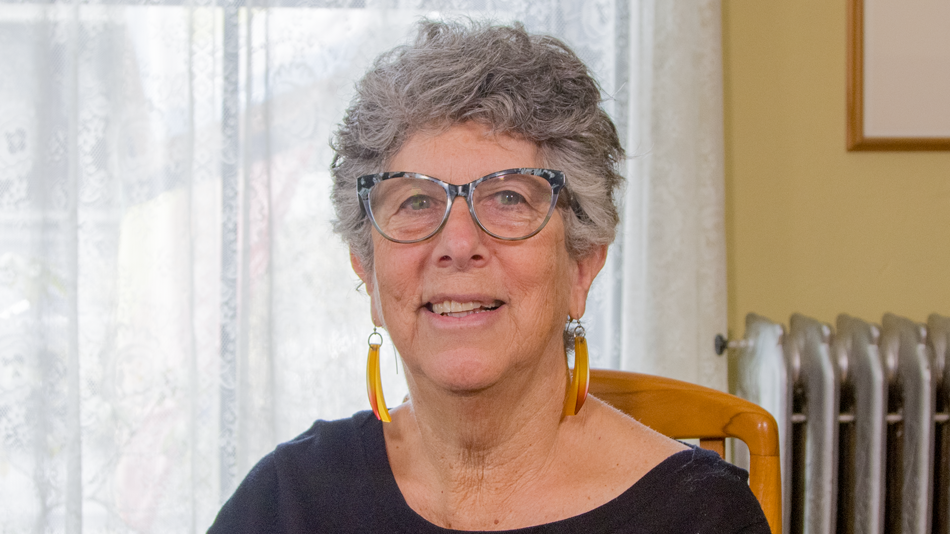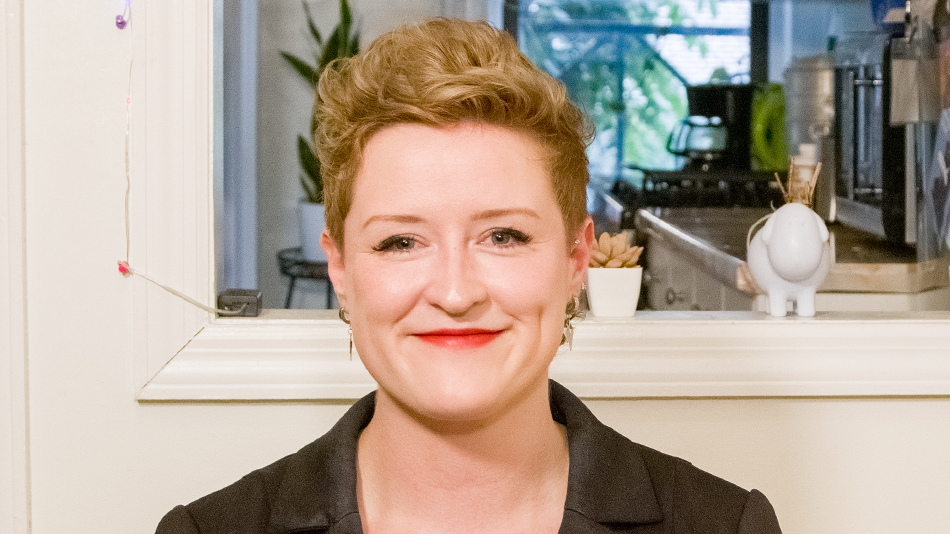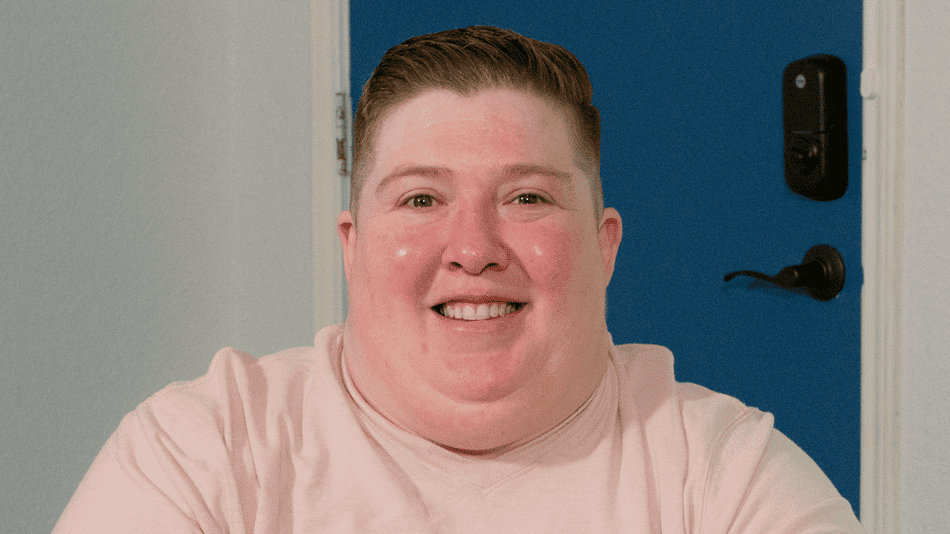I’m Leoni Terblanche from Pretoria, South Africa.
Ever since I remember when I was a child, my mom put me in dresses, until age six, where I started making my own decisions and I just wore pants. For me, it always was important to be comfortable, to feel comfortable, to feel myself.
Fast forwarding into my adult life, I ran into a situation at work once, where I really loved what I was doing, I loved my job. I was an assistant maître d’ on cruise lines, and I did it for a very long time, for six years. But there was something that held me back where I couldn’t be myself. It was the uniform. The uniform really bothered me. And at some points, I did ask the manager if we could change our uniforms, the girls could wear pants. We had to wear skirts. This is 2014. And he said, “Absolutely no. Girls wear skirts.”
I realized that the manager would not change his mind and it was a hard no. There was nothing up for discussion, and I was still stuck wearing my skirt every day. I did a good job. I did it. But I still just didn’t feel myself. I decided to finish another contract in Antarctica, and it was really cold, and we still had to wear skirts. After that contract, I decided to not sign up for another contract, and I moved to New York City.
If you don't feel welcome or yourself, you're not going to be able to do a great job.
I was able to thrive discovering this beautiful, diverse and inclusive culture that we have over here. I met with my beautiful wife that I married. I was able to find jobs that I love, where I can wear what I want. I started working for a tech company, which really made me feel myself and where I belong.
I was living in New York now about two years, and I decided to get another degree. I went back to school, I studied finance. And after working for the tech company for a few years, I’m transitioning into the finance world, I went to work in a bank. I was really excited. I left my old job.
Until one day where a customer slipped a note under my teller window, and at first I was scared, as you can imagine, immediately. I didn’t know what to do. Until I turned over the note, I read the note, and it said, “He doesn’t like you,” with a weird face, smiley face. I confronted the customer, and I asked him if he could explain to me what the note means because I was a little confused. He said that he overheard my colleague doesn’t like me because of my sexual orientation. Immediately, I wanted to go home. I didn’t know. I just know I didn’t want to be there anymore. I didn’t want be around my colleagues anymore, and I didn’t want to come back to work.
I didn’t approach my supervisor, because I didn’t think it’s going to really make a difference. And I didn’t approach my supervisor, because in that way it’s just going to make me feel more unwelcome, now I need to relive it and explain it to somebody else. Instead, I looked for a new job. I applied every day to go back into the tech world, go back into where I felt comfortable.
It took me about six months to get back, and finally, I found my forever home again, where it is a place where I feel welcome, where I feel included, and where I’m surrounded with people that care, and people that think like me. And I’m happy that I’m back there. Now I’m working with colleagues that understand me, colleagues that inspire me. I’m back where I feel welcome, and included, and celebrated by all my colleagues, and we are wearing any pants that we want.
If you don’t feel welcome or yourself, you’re not going to be able to do a great job, you’re not going to be passionate. And that’s the only way for me to be passionate is to feel myself.








Share